THE INSPIRED
|
|
My wife and I waited until our boys were 13 and 11 years old before allowing them to have an Xbox. Even though they were the last of their friends to get a gaming system, it still seemed early to us. I’d heard tales of gaming addiction, in particular stories of how kids can spend hours upon hours playing Fortnite, losing track of time, and squandering beautiful sunny days in favor of video games. When we changed our minds, we did so cautiously and mostly because we knew that without a gaming system, they were being closed out of opportunities to socialize and connect with their friends. Even still, the Xbox came with some guidelines, and we needed a “family meeting” before allowing them to begin playing Fortnite.
Over the quarantine, I watched from the background as they began playing this game that I had heard so much about. To my surprise, I’ve come to see the game not as a threat to my kids but as one of the most powerful learning experiences they’ve had. And, watching them at play has led to some learning of my own. What they’ve learned.
How they’ve learned.
As an educator, I’ve often heard students and parents talk about how video games can consume students time and attention, how it is challenging to set reasonable limits, and how gaming can get in the way of a healthy lifestyle. To be clear, I also share these worries and I still have reservations about the game. I am ever-aware of the amount of time that they are “boxing”. Beyond that, I wonder about the impact of violent video games on their mindset - even in the muted version portrayed in Fortnite. I remain cautious and can’t shake the worry of a latent, cumulative, and potentially negative impact of gaming on kids’ world view, ambition, creativity, or some other vulnerability. I’m not advocating for gaming; that’s not what this post is about. I’m simply noticing a phenomenon that surprised me. In recent years, I’ve dedicated hours and energy and creative thought to guiding my own school community’s “definition of learning”. Through that work, we’ve created a powerful statement of what learning is and what it isn’t including:
As I watch my kids play and explore and collaborate in this digital platform, I can’t help but notice that this is learning and wonder if the work they are completing and submitting each day in school will stick with them as much as the lessons learned while playing.
By Ted McCarthy, Principal of Sutton High School in Sutton, MA and an Inspired Learning Catalyst
The truth is, I didn’t think much about that comment until about a year later. I was having a conversation with a student named “Mike” - he was black - and I asked him why he was having trouble in a particular class. He looked at me and said “Mr. McCarthy - what do you want me to do? They all say I’m ‘their N-word’ and call me ‘their boy’.” If you had polled the senior class that year, they would have told you that Mike was universally beloved, popular, and a great member of the class. But his friends - each of whom was white - felt no pause using a word that has been used to violently target African Americans throughout history. Was their intent to be racist? Most likely - no. Did their behavior and language create a racist environment in my school? Undoubtedly - yes. Mike and I finished up the conversation, and I told him that I would do something about what he told me. If he asked me right then what I was going to do - I wouldn’t have an answer to give him. It was one of the worst experiences I’ve had in my career.
Sutton High School is like a lot of suburban schools. Great kids. Proud traditions. Engaged community support. And almost entirely white. The Sutton Public Schools reflect the community. The town - and the high school - are incredibly homogeneous. What I realized in Sutton is that the issue wasn’t just about the small group of students of color, it was actually about our white students. Our white students had no experience living and working in a truly diverse environment. They had relatively few opportunities to interact with other students whose life experiences were different from their own, simply because of the color of their skin. If we were going to ensure that our school was a place where every student would feel safe and welcomed, and set our students up for success in a world that is far more diverse than the one where they spent the first thirteen years of their educational career, we needed to address issues of race, bias, and privilege directly. We owed it to them to do something different. Dr. Ibrim Kendi, author of Stamped from the Beginning: The Definitive History of Racist Ideas in America and most recently, How to Be An Antiracist says about the topic of race & racism, “In no other capacity is a problem solved by not talking about it. And yes, it’s extremely hard to treat racism.” Yet, that is exactly what many schools do when it comes to the topic. If asked, almost every person in your school would agree that we should educate our students on issues of race and challenge any previously learned prejudiced or even racist ideas they may hold. However, how many of us systematically and intentionally have programs and practices that do just that? And if we don’t - why don’t we?
In Sutton, we have started to address these issues in a more direct and focused way - and we are seeing the results. We have programs in place that give our students the opportunity to explore these topics in a deep and meaningful way, not just as a side part of a lesson in English or history class. We’ve provided training to our staff so that they can be more aware of issues of implicit bias in their own practice and take steps to make their classrooms more inclusive and welcoming. And our Connections Club - a group of teachers and students that works on issues of social justice in our community, hosted our first Connections Conference where we hosted over 500 students, teachers, and administrators from all over Massachusetts. It was an inspiring day where participants got to learn from experts, and think about how they can make positive change in their own communities. We are hosting even more schools (and more states!) at this year’s conference. Do these steps make us perfect? Far from it. But now I have an answer for Mike if he ever asked me that question.
As teachers, we would never expect our students to know something without us teaching it to them. As school leaders, it’s our responsibility to make sure that our school’s mission is more than a phrase on the website. We don’t need to be experts to start meaningful work to make our schools more inclusive and equitable. Certainly, when I had that conversation with Mike - I was far less aware and educated on issues of social justice in schools than I am now. I was lucky to have great teachers with whom I could partner and learn. No one wants their students to end up as cautionary tales of racism on Twitter or the Internet. More importantly, though, we want our students to be self-aware, empathic, and just. We want our students to change the world for the better, and if they are going to do that they need us to make school a place where they think about and wrestle with things that truly matter.
By Liz Garden, Principal of Mayo Elementary School in Holden, MA and Inspired Learning Catalyst As educators, we have been “doing school” for a long time. The main change over the years is that your job title has changed from student to educator, but we have all been part of schools for most of our lives. This week, I began the process of registering my daughter for kindergarten. That fact has me thinking about what my beginning school experiences were like versus what she will experience over the next several years. I am hopeful that her learning experiences and how she does school will be very different from her mama’s experiences. 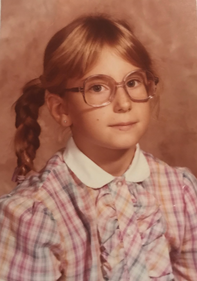 I remember bits and pieces of my early years in school. I remember being afraid of my 2nd grade teacher. I remember that she did not seem to like me or any of the kids in the class. I remember the desks being in rows. I remember breaking my left arm and being forced to fill out worksheets and practice handwriting with my non-dominant hand. What I don’t remember was being engaged in the learning process. I don’t remember being motivated to learn or even being asked what I was interested in. In fact, I have a vivid memory of struggling with greater than and less than, and when my dad tried to help me understand what it meant and why it was an important concept to grasp, I simply told him that I didn’t need to know that, I just needed to know the answer. Clearly the idea of Universal Design for Learning had not made its way into classrooms, especially not my 2nd grade classroom at Washington Elementary in Alliance, Ohio. Fast forward thirty or so years to 2020; I popped into some 2nd grade classrooms in my school the other day. I saw student desks in clusters, allowing for collaboration and community. In many classes, I actually never saw students sitting in their desks. The 2nd graders were learning about habitats and their teachers had decided to turn each of their classrooms into a different habitat. Students had created an underwater ocean mural in one room. There were 3D paper icicles hanging from the ceiling and the beginning stages of an igloo made out of pool noodles, garden wire supports and a sheet in another room. One classroom had crumpled up butcher paper vines hanging from the light fixtures (don’t tell the fire marshal) and giant leaves to transform it into a “rainforest.” In the ocean room, students were investigating and researching different creatures with their science journals, trying to determine if they were invertebrates. Some students were reading science picture books on their own, looking for answers. Others were exploring information cards containing realistic photos of ocean creatures. And the best part was that the students in the ocean room where not the students who were normally in that teacher’s classroom. My 2nd grade team decided that they would teach this unit by each focusing on one habitat and letting the students rotate into each classroom. Teachers were learning about and spending time with all of the students in the grade while students were getting the chance to learn with and from all of the teachers on the team. As my daughter enters public school next year, I am thankful that it won’t be the same public school experience that I had decades ago. Today’s educators are exploring the world of Universal Design for Learning and realizing that “doing school” means figuring out ways to engage and empower our students instead of telling them what to do and expecting them to simply comply. I love this thought from George Couros in the book Innovate Inside the Box: Empowering Learners Through the UDL and the Innovator’s Mindset: “If we understand information on a deeper level and do something with it, we also are more likely to retain it as well.” Those 2nd graders who are exploring, investigating, and asking questions about the ocean creatures and the ones who are playing with Lego Inuit people in an igloo in their classroom, incorporating newly learned facts about the Arctic - I am hopeful that we are reaching these learners on a deeper level. The main goal of Universal Design for Learning is to create expert learners who are purposeful & motivated, resourceful & knowledgeable, and strategic & goal-directed. Just as we have all kinds of learners, we have all kinds of educators who are at different comfort levels with Universal Design for Learning. No matter whether you are an educator who just learned what the abbreviation UDL stands for after reading this post or if you are an educator who has been implementing Universal Design for Learning components into your classroom for a while, the CAST website is a great place to start or to continue your learning. Some books to check out include: Universally Designed Leadership, UDL Now, or the new text Innovate Inside the Box. You can also check out the work being done by Dr. Katie Novak and Dr. Kristan Rodriguez. Thankfully, my daughter, and so many other young learners, are stepping into classrooms that are so different from what we experienced as kids. I want her to be engaged in learning. I want her to feel empowered. I want her to have a voice and choice in her educational pursuits. Thanks to UDL, I know that my daughter and all of the other learners of today and tomorrow will not be a part of the “one size fits all” teaching and learning of the past. I can’t wait for her to “do school” in a whole new way!
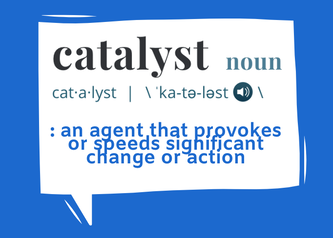 Charting a course for the future of school is an exciting undertaking. One of the parts of our work at the Inspired Learning Project that we enjoy most is having the chance to connect with like-minded educators who are leaders of change. Whether as educators, authors, researchers, or learners - they take steps to support school environments that align with their beliefs about learning. This year, The Inspired Learning Project has partnered with this talented group in order to gain their support in acting as catalysts for building the next generation of schools. With that in mind, we are excited to introduce you to the Inspired Learning Catalysts. Through their role, they will regularly share their thoughts and perspectives through our blog. In addition, we look forward to featuring their work through digital conversations, the chance to connect at professional development workshops, and more. Our ILP Catalysts include: Nicole Bottomley, Principal, Holliston High School Jenn Clifford, Principal, Cutler School, Hamilton-Wenham Public Schools Kathleen Duff, Director of Career and Technical Education, Newton Public Schools Liz Garden, Dr. Leroy E. Mayo Elementary School, Wachusett Regional School District Brian Hodges, Social Studies Coordinator, Attleboro High School Dr. Beth Holland, Researcher & Writer, Newport, RI Amanda Hough, Teacher, Mashpee Middle/High School Patrick Kelley, Principal, Triton Regional High School Erin Lachapelle, Dean of Students, Ashland High School Patrick Larkin, Assistant Superintendent, Burlington Public Schools Ted McCarthy, Principal, Sutton High School Pam Moran, Author/Retired Superintendent, Albemarle County Public Schools, VA Toby Reed, Teacher, Attleboro High School Kelley St. Coeur, Principal, Ashland High School Colleen Terrill, Teacher, Seekonk Erik Tracy, Principal, Hamilton-Wenham Public Schools Paul Vieira, Assistant Superintendent, Ashland Public Schools Are you interested in being an Inspired Learning Catalyst? Email [email protected] to learn more about this opportunity. Click Here to ListenThe Inspired Learning Project was pleased to welcome Elliot Washor, author of Leaving to Learn and co-founder of Big Picture Learning to our podcast series. Our conversation touched upon a wide range of topics including Elliot's own path as a learner, the formation of his original school, The Met and Big Picture Learning and what Leaving to Learn looks and feels like in practices. We also discuss the new MURSD Learning Adventure's project which just launched in November. We highly recommend Leaving to Learn as it explores the logistics of off-campus learning framed in 10 expectations that students have for their schools. If you like what you hear, and we think you will, and want to read more of Elliot's writing check out the links below. These pieces get to the heart of inspired learning and provide thought-provoking insights to reimagine school Learning is a Lifelong Game Where the Score Doesn't Matter The Time Has Come for Assessment that Matters What Are We Losing By Keeping Learners On-Track? Getting Centered by Going to the Edge Previous EpisodesOur interview with Elliot is one of almost twenty author interviews, including conversations with Yong Zhao, Tony Wagner, Anya Kamenetz, just to name a few. Our full lineup can be found on YouTube by clicking here. We are also in the process of converting all of our video interviews into podcasts. Our interview on deeper learning with Harvard's Jal Mehta has been added and we'll update you as more are added to our feed.
The Inspired Learning Project and Nipmuc Regional High School are excited to continue its Inspired Learning Professional Development series aimed at connecting educators for PD focused on reimagining, redesigning & reinventing education. These workshops offer hands-on, low-cost professional learning opportunities that encourage collaboration and sharing of best practices.
Friday, January 3, 2020 (12-3pm) Leveraging the Educator Evaluation Process to Close the Gap between our Beliefs and our Practices Join leaders and educational coaches from across the commonwealth to learn about the ways Nipmuc Regional has leveraged the Educator Evaluation process to promote professional growth, reflection, and risk-taking through the creation of model SMART goals that are actionable, optional, and collaborative. Additionally, you will explore structures to promote educator reflection, streamline classroom walkthrough feedback, as well as write evaluations that are consistent, concise, and focused on celebrating success and encouraging continued growth. ($30 per attendee. Lunch provided) Friday, February 7, 2020 (12-3pm) Sharing your School’s Story: Creating Transparency in the Journey to Reimagine School How do you share the stories of success within and beyond your school community? Capturing and sharing the journey as you reimagine school may be as important as the work itself. Telling new stories of learning is important as you continue to explore your beliefs and adjust the learning to align more closely with these beliefs. Join educators and leaders at this professional development to learn about the process, tools, and resources that help to make sharing your story visual and transparent. ($30 per attendee. Lunch provided) Tuesday, March 3, 2020: 3rd Annual Inspired Learning Convention: “Telling Stories of Inspired Learning” Join educators from the Mendon-Upton Regional School District and from across Massachusetts for a day of learning, conversation, and inspiration. This year’s convention begins with a keynote from educator, author, and nationally syndicated storyteller Matthew Dicks. The convention will also host Richard Byrne, educator and founder of Practical Ed Tech. In addition to the keynotes, the day will provide more than 40 workshop sessions, sharing relevant, authentic learning experiences that learners will remember throughout their lifetime and bring back to their classrooms and school communities. (Visit the 2020 Inspired Learning Convention page to submit a proposal or to register for the Inspired Learning Convention 2020) Friday, March 13, 2020 (9am-1pm) Innovating Authentic Learning: 21st Century Learning Conferences (Inspired Learning Days) Looking to connect your classrooms with the community? Interested in partnering with professionals and community leaders to engage your students? Hoping to increase student agency to make students leaders of their own learning? Join us on March 13 to learn about how Nipmuc uses 21st Century Learning Conferences (Inspired Learning Days) to answer these questions and more. Participants will learn about this scalable model and focus on actionable ways to adapt the model for implementation in their own classrooms. Participants will also be invited back to Nipmuc on April 15, if interested, to see our 21st Century Learning Conference (Inspired Learning Day) in action. ($50 per attendee. Breakfast and lunch provided. Teams encouraged!) Friday, March 27, 2020 (9am-1pm) Better Together: Project-Based Learning & Maker Education: Inspired Learning is rooted in providing students with the opportunity to engage deeply with course content and apply their creative interests to design products that are personally meaningful. Designing these projects can sometimes feel like a daunting task for educators who can often wonder where to begin. Project-Based Learning (PBL) and Maker Education are two complementary approaches that provide a flexible structure to implement inspired learning experiences in your classroom or school. This session will provide educators with structures and strategies to begin planning their maker-oriented PBL units. Participants will walk away with the beginning of a new project and next steps to bring it to fruition. ($50 per attendee. Lunch provided). Nipmuc Regional High School is located in Upton, Massachusetts - minutes from the Mass Pike and Route 495. Get directions here. Questions? Email John Clements ([email protected]) or Mary Anne Moran ([email protected]), Co-principals, Nipmuc Regional High School.
Imagine that you had the opportunity to build a new version of school that was different by design. Where would you begin in your exploration, planning, and research? What decisions would you make about curriculum, instruction, and assessment? How would you build a vision and cultivate a team of educators to join you on your journey? How would you reimagine learning spaces to align with your beliefs about learning?
In recent weeks, we had the privilege of connecting with Jennifer Young, a Principal on Special Assignment from the Mansfield Independent School District in Texas who has the exciting (and daunting!) responsibility of answering all of the questions above. Recognizing the imperative and possibilities of building a school of modern learning, Principal Young’s district asked her to lead this process for their community. Over the course of the year, she has been researching, reading, collaborating with her team, and visiting schools across the country to tap into innovative ideas about school redesign. We were excited to meet with her at Nipmuc during her recent trip to Massachusetts. We’re even more fortunate to stay connected with her and to have the chance to follow her work to build a school that is different by design. The questions, possibilities, and excitement for this challenge are endless. Enjoy the interview and check back with us for future interviews as we follow Principal Young’s progress.
Resources:
Leading from the heart requires a mindset that respects the power of culture, builds a backbone of trust, and fuels a passion for the work. We kicked off our 2019-2020 ILP Digital Conversations with Liz Garden, proud principal of Mayo Elementary School in Holden, Massachusetts. We connected with Liz to get insight into the mindset that guides her work and walked away with so many actionable strategies that can be easily replicated to create and sustain a culture that supports literacy, encourages inclusivity, and spreads positivity.
To say we enjoyed speaking with Principal Garden would be an understatement. Listen in on the conversation and walk away with new ideas, strategies, and activities to inspire learning at all levels in your schools and communities. Save the Date!Liz Garden, principal of Mayo Elementary School in the Wachusett Regional School District will be our first guest for the Inspired Learning Conversation. Liz is known for her passion for reading and sharing that enthusiasm with students and staff alike. She'll share practical and creative strategies she's implemented to foster a community of joyful readers. In addition, we'll explore her strategies for building and enhancing school culture when administrators transition to a new school or district. We'll also dive into Mayo's new UDL initiative which has quickly yielding Inspired Learning opportunities for students and staff alike. We'll touch upon these topics and your questions as we kick off year three of the Inspired Learning Project.
You can join us live at 3:30 PM ET by clicking here. We'll also post the video and a recap on the blog following the conversation next week.
This week I sat down with Mendon-Upton Superintendent Joe Maruszczak to discuss a range of ideas that shape and support Inspired Learning. We started with the concept "playing the whole game" in school that was developed by Harvard Professor David Perkins. In hindsight, the idea should have been unpacked more in the microcast and this excerpt from Education at Bat provides a succinct overview:
Why think about little league? Perkins says that in baseball, as in playing an instrument, one learns what it is to play the whole game first, and then to fine tune aspects of it over time.
Authenticity is a hallmark of Inspired Learning and the idea of "playing the whole game" provides a useful heuristic for instructional design.
We also explored possible tools for capturing the outcomes of Inspired Learning experiences. Our conversation focused on portfolio tools that provide more comprehensive evidence of student learning. Among the resources we discussed were Badgr (open digital badges), bulb, Richer Picture and tried and true blogging approaches like Wordpress. With these tools, we can support students as they craft multimedia stories that better capture the depth and meaning of their learning experiences. The assessment component of our conversation was sparked by Shane Parrish's new book "The Great Mental Models." It's first model is "The Map is Not The Territory." This model is particularly relevant in public education where we often overly rely standardized assessments (the map) to assess the quality of our schools. It's not that this map doesn't provide useful information, but it can't possibly encompass all of of school quality or even most of it (the territory). Our current "maps" often do not capture the diversity of skills that are developed and expressed in Inspired Learning experiences. Thus, it's incumbent upon us to become cartographers and design maps that capture what we value. Give our conversation a listen and leave us a comment with your thoughts. Bonus Content
,We recently spoke to Mike Caulfield, author of the free eBook Web Literacy for Student Fact-Checkers. We touched upon a wide range of topics in digital media literacy and learning as well as hs new open modular course, Check, Please! Any educator who is working with students to cultivate research skills, information literacy or civic engagement would benefit from both the interview and exploring the course.
The Inspired Learning Conversation returns on Monday (10/28) at 4:00 PM with Dr. Julie Coiro to discuss her book From Curiosity to Deeper Learning. We'll focus on designing interest-driven inquiry experiences for students in grades K - 5. We hope you will join us. |
Click above to share a practice that promotes student agency, ignites students' passions, or creates a bridge between classrooms & the real world.
Click above to nominate an educator to be celebrated by the Inspired Learning Project.
Archives
November 2020
Categories |


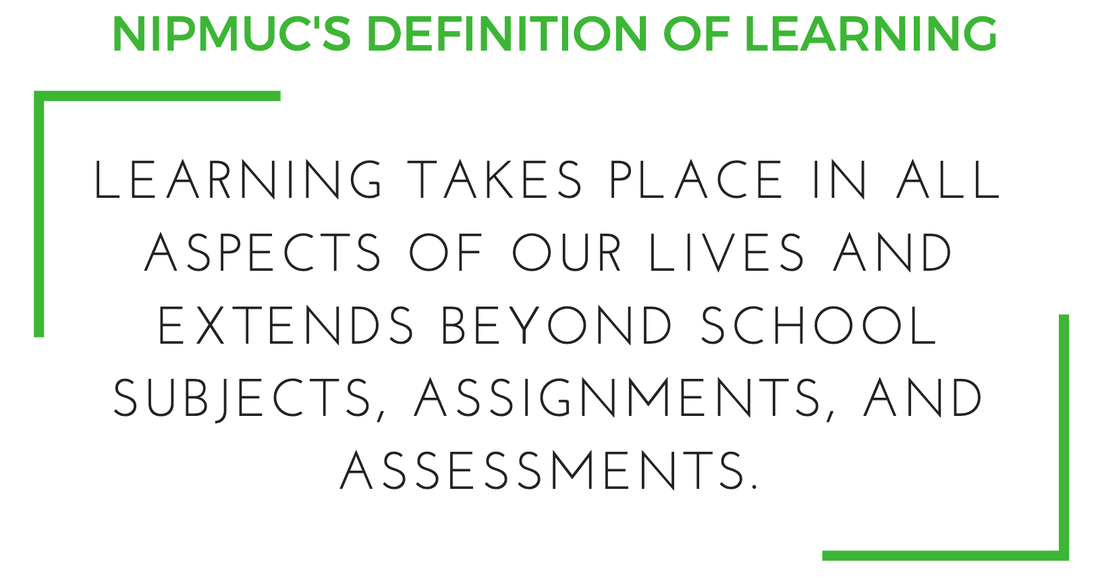
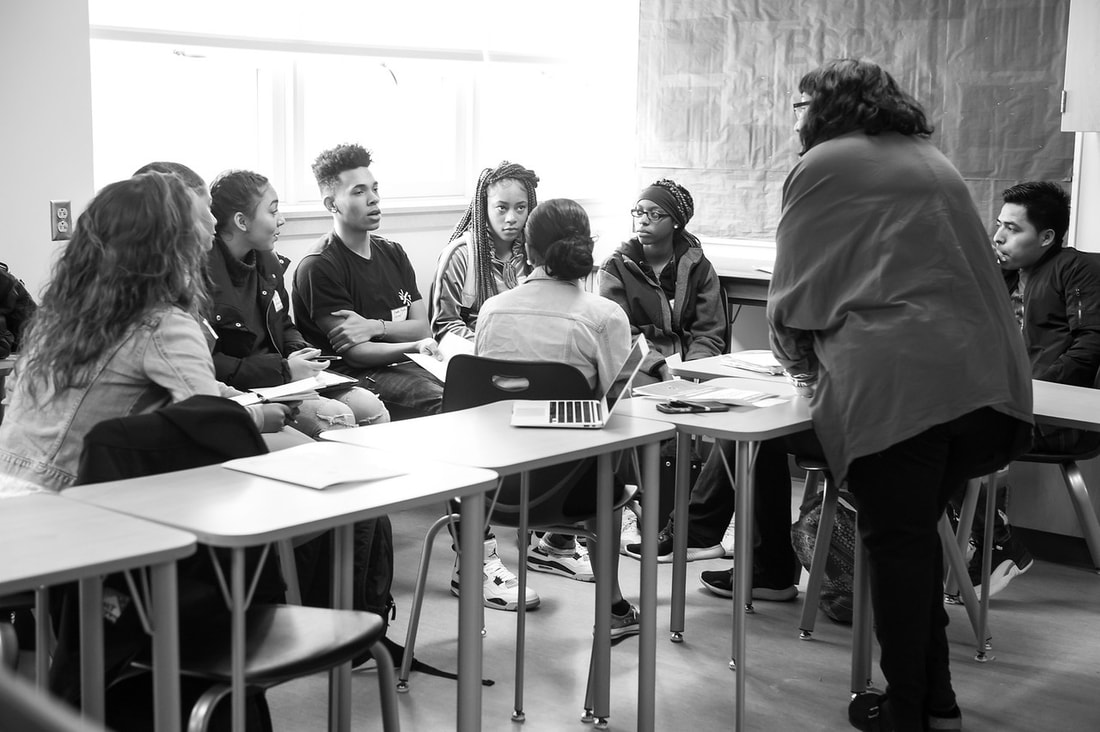
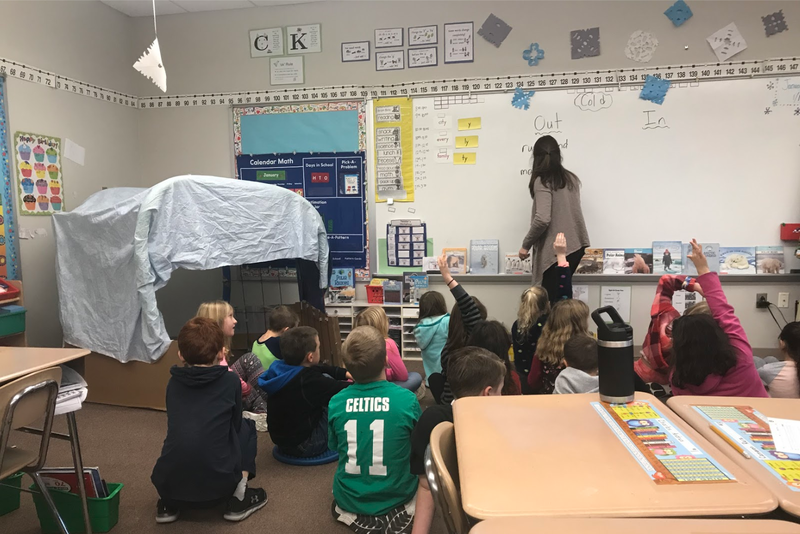
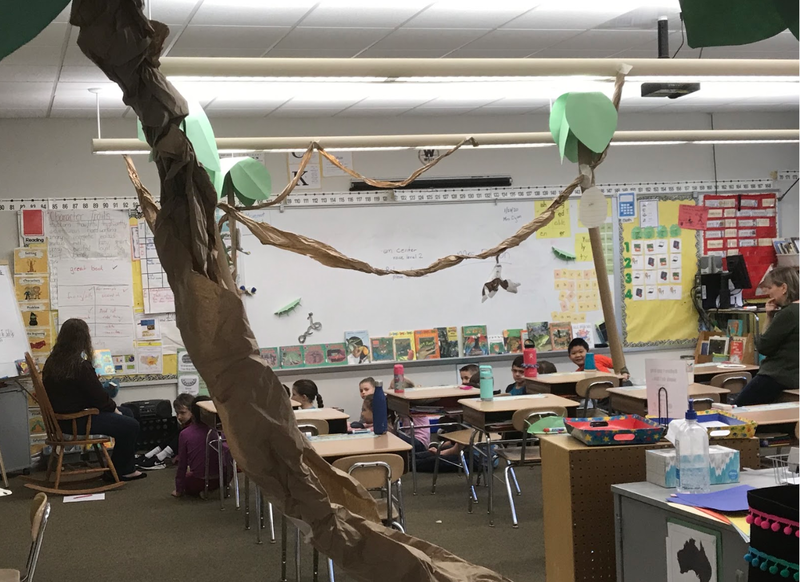
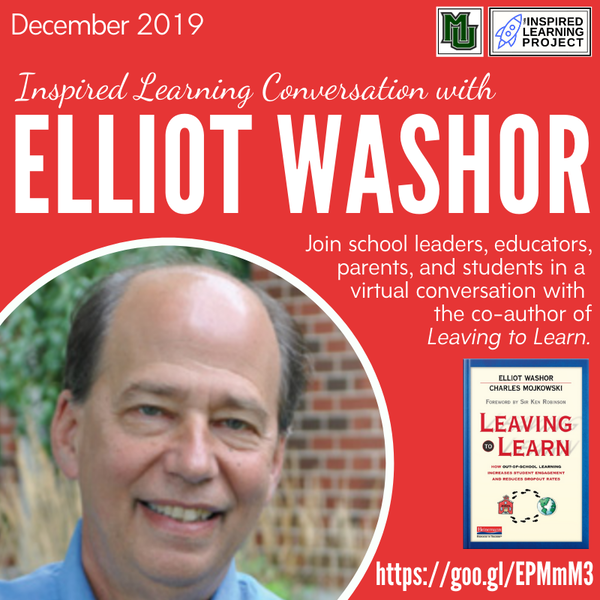
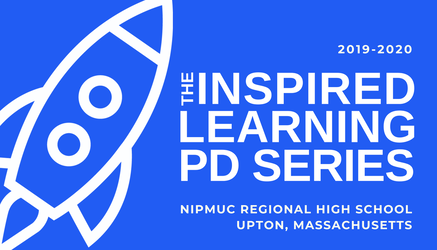
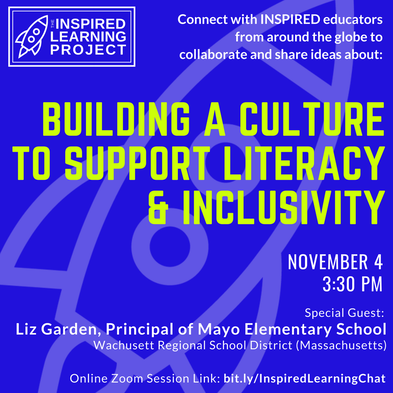
 RSS Feed
RSS Feed